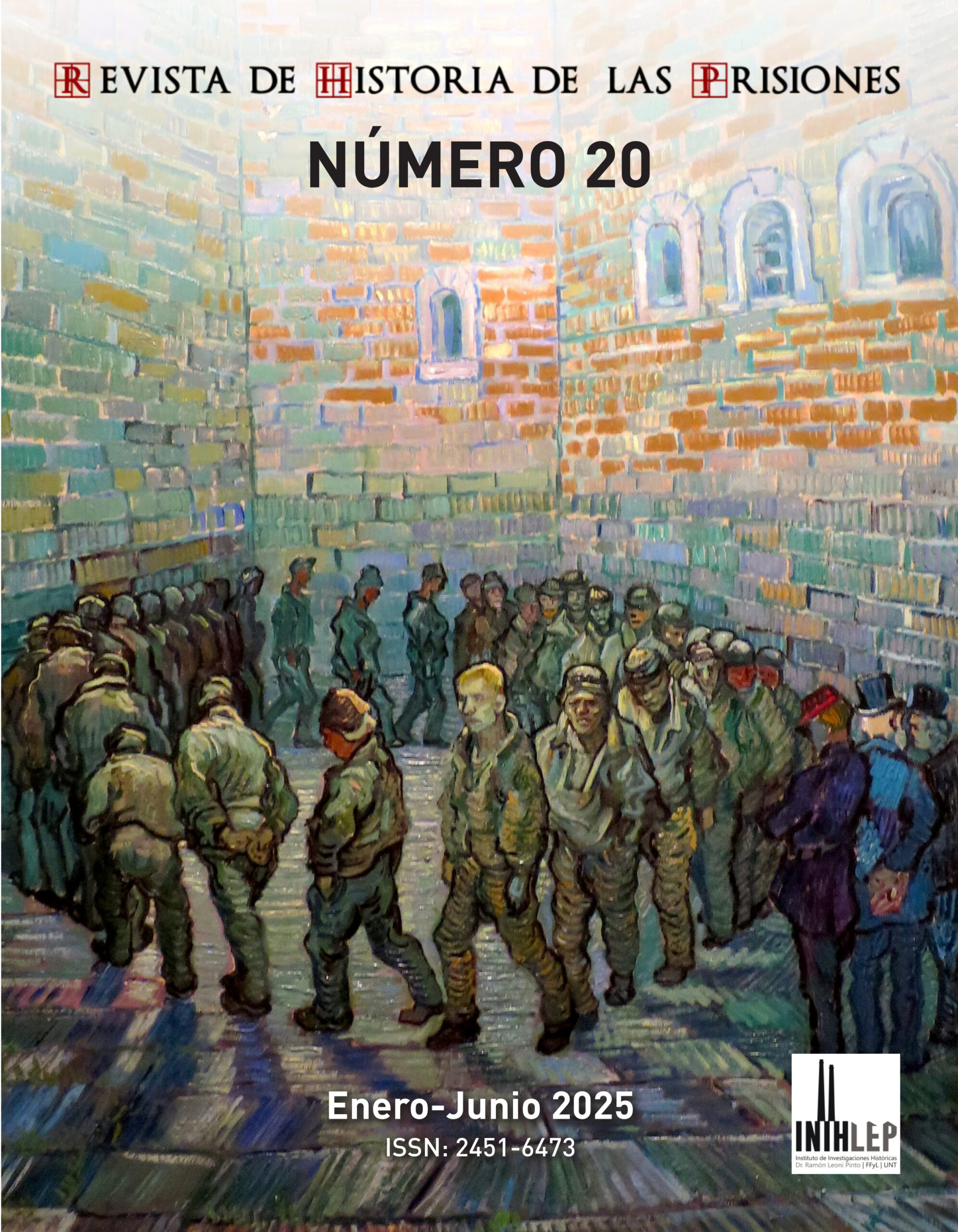Colonialism and modernization in the emergency and evolution of prisons in Latin America until the first half of the 20th century
DOI:
https://doi.org/10.70198/rhp987Keywords:
Prisons, Latin America, criminology, colonialism, modernityAbstract
TPrisons in Latin America evolved from simple places of temporary custody in colonial times to become central institutions of the punitive system. Initially, punishment was carried out through public executions, floggings and forced labor. The shift toward imprisonment as the primary form of punishment began in the 18th century, influenced by European reformist ideas and the Industrial Revolution.
During the 19th century, after independence, the first modern penitentiaries were built in the region, seeking to project an image of modernity and expand state control. Positivism significantly influenced the design of prison regimes and punitive therapies in the early 20th century. Positivist criminology had a lasting impact on legislation and judicial practices, coexisting with racial and class prejudices. Political imprisonment was a common practice, intensifying during the dictatorial periods of the 20th century. Although there were attempts at reform and modernization, many Latin American prison systems faced problems of inefficiency and corruption. The aspiration for “modernity” in the penitentiary sphere did not always materialize, reflecting the social and political complexities of the region.
References
Ansaldi, W., & Giordano, V. (2012). El orden en sociedades de dominación oligárquica. En América Latina. La construcción del Orden. De la colonia a la disolución de la dominación oligárquica (pp. 17-51). Buenos Aires, Argentina: Ariel.
Caimari, L. (2002). Castigar civilizadamente. Rasgos de la modernidad punitiva en la Argentina 1827-1930. En S. Gayol y G. Kessler (coords.), Violencias, delitos y justicias en la Argentina (pp. 141-167). Buenos Aires, Argentina: Manantial.
Foucault, M. (2008). Vigilar y castigar: El nacimiento de la prisión. Buenos Aires, Argentina: Siglo XXI Editores.
Garland, D. (1999). Castigo y sociedad moderna: Un estudio de teoría social. México: Siglo XXI Editores. Garland, D. (2018). Castigar y asistir: Una historia de las estrategias penales y sociales del siglo XX. Buenos Aires, Argentina: Siglo XXI Editores.
Melossi, D. (2018). Controlar el delito, controlar la sociedad: Teorías y debates sobre la cuestión criminal, del siglo XVIII al XXI. Buenos Aires, Argentina: Siglo XXI Editores.
Melossi, D., & Pavarini, M. (1980). Cárcel y fábrica: Los orígenes del sistema penitenciario (siglos XVIXIX). México: Siglo XXI Editores. Miquelarena Meritello, A. (2013). Las cárceles y sus orígenes. Recuperado el 31 de mayo de 2018 de http://www.pensamientopenal.com.ar/doctrina/37067-carceles-y-sus-origenes
Quijano, A. (2000a). ¡Qué tal raza!. Revista Venezolana de Economía y Ciencias Sociales, 6(1), 37-45.
Quijano, A. (2000b). Colonialidad del poder, eurocentrismo y América Latina. En E. Lander (comp.), La colonialidad del saber: Eurocentrismo y ciencias sociales. Perspectivas latinoamericanas (pp. 201-246). Buenos Aires: CLACSO.
Quijano, A. (2002). Colonialidade, Poder, Globalização e Democracia. Novos Rumos, 17(37), 5-25.
Rusche, G., & Kirchheimer, O. (1984). Pena y estructura social. Bogotá: Editorial Temis.
Salvatore, R., & Aguirre, C. (2017). Revisitando El nacimiento de la penitenciaría en América Latina veinte años después. Revista de Historia de las Prisiones, 4, 7-42.
Segato, R. L. (2007). El color de la cárcel en América Latina. Apuntes sobre la colonialidad de la justicia en un continente en deconstrucción. Nueva Sociedad, (208), 142-161.
Zaffaroni, R. E. (2015). La filosofía del sistema penitenciario en el mundo contemporáneo. En G. Bardazano, A. Corti, N. Dufau & N. Trajtenberg (comps.), Discutir la cárcel, pensar la sociedad. Contra el sentido común punitivo (pp. 179-191). Montevideo: Ediciones Trilce.
Zea, L. (2003). El positivismo en Hispanoamérica. Recuperado el 25 de mayo de 2018 de https:// www.ensayistas.org/filosofos/mexico/zea/pla/0-5.htm


